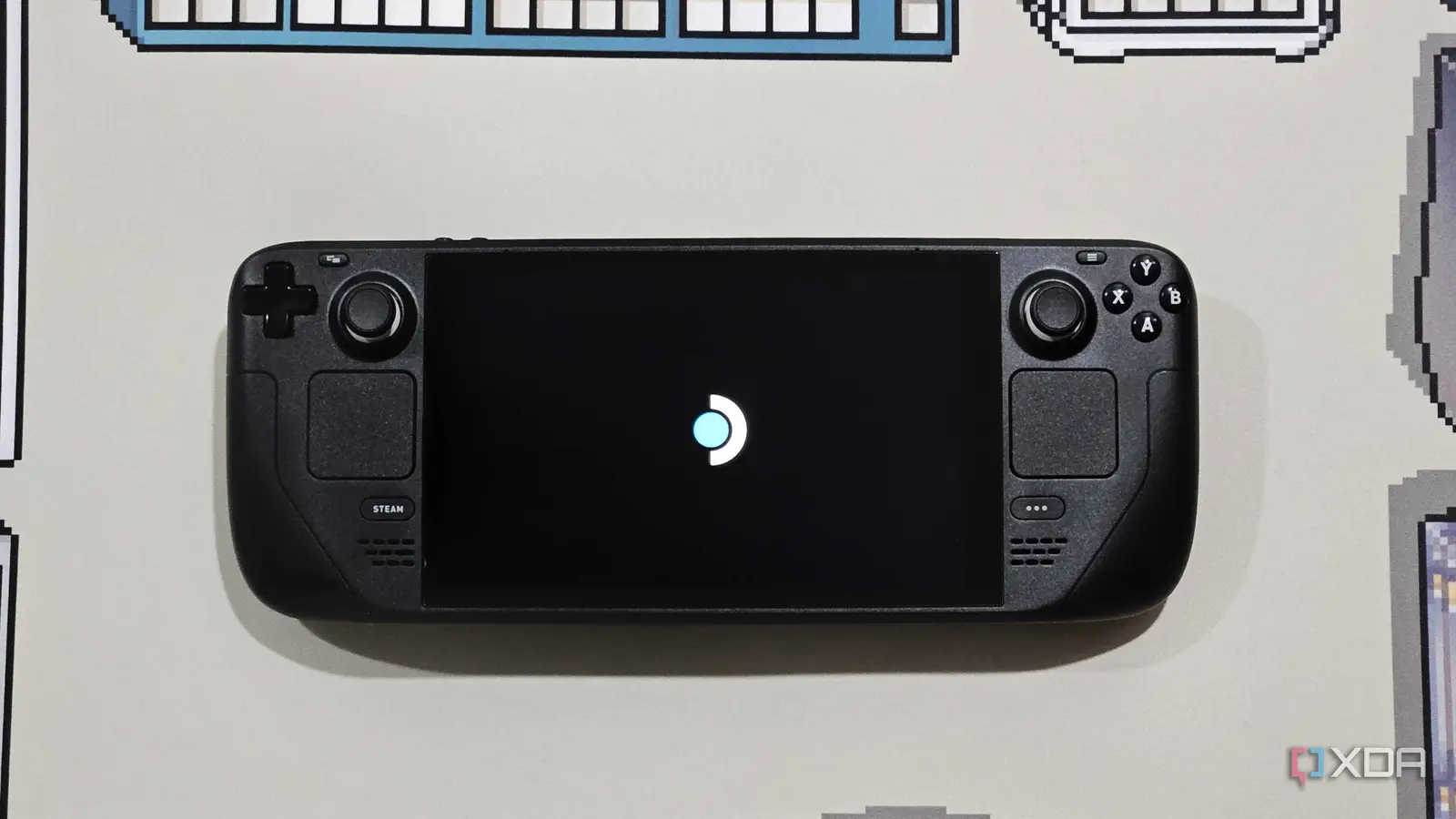Copyright XDA Developers

I remember playing games on my Apple IIc as a kid, bathed in the monochrome glow of the CRT phosphor, and wishing it were more portable. The Apple IIc was already ready for portability, with an all-in-one design that just needed plugging into a monitor, with a solid fold-out carrying handle. But I wanted more. I've always loved science fiction, and when I discovered cyberpunk as a genre, I was irrevocably hooked. Then I found tabletop gaming and both the Cyberpunk and Shadowrun universes, and I dreamed of a portable computer workstation called a cyberdeck, able to surf the net, hack systems, and do it all without needing a desktop. When I got my hands on a Steam Deck not long after launch, it was like all those stored memories bubbled to the surface. Here was a handheld, hackable device that ran a Linux desktop environment and a pared-down GUI for gaming. Touchpads, controllers, and the extensibility of USB-C all combined in one glorious device. Sure, it didn't plug into me, like a cyberdeck from my books, but it was the next best thing (and probably safer to use). The Cyberdeck I've dreamed of (almost) It doesn't quite plug into my brainstem but... It feels like every year someone trots out the "year of the Linux desktop" trope, but when the Steam Deck released, it felt like it was more than empty words. Valve spent considerable effort making that a reality, and nowhere is it more evident than in the Proton translation layer. This would have been the "secret sauce" for any other gaming company, kept under wraps in proprietary code. Except Valve made it all open-source, freely available for anyone to use, change, tweak, and enjoy. Gaming is often cited as the reason that people wouldn't use Linux, as it has never gotten the support from game studios to flourish. But with Proton, almost every Windows game can run on Linux without changing a single line of code. Now, this wasn't my first rodeo with Linux. I'd used it almost exclusively for years, on an old HP EliteBook that was falling apart. But that laptop couldn't run games even at peak performance, and all I needed was a desktop environment to browse the web and use chat apps like mIRC. Since then, I'd become used to playing games on more powerful Windows desktops, and didn't want to switch away, but Proton (and the ease of the Steam Deck) made it possible again. A few carefully chosen peripherals make it even better By far the best peripheral for me is a pair of smart glasses. It's not because of gaming, however, as I find the device's screen better for that use. But for productivity, having one or more virtual screens in my field of view so I can get work done without dragging a monitor around. They have a higher resolution than the 800p screen on the Steam Deck, making them easier to read in desktop mode. And since it can't read my thoughts, a HHKB serves as my input device. I (sometimes) have a mouse attached as well, although I'm faster with keyboard shortcuts on the Linux desktop. Having to move my hands to a second peripheral often slows me down, and that's further compounded by having the AR glasses on and not being able to see my hands. The Steam Deck is my workstation away from home It's powerful, portable, and perfect for downtime as well My current job doesn't require much in the way of software, and most of it can be handled by a web browser. That wasn't always the case, and if I needed proprietary software or Windows-only apps, I wouldn't be able to use my Steam Deck in this way. The APU is fine for desktop use as long as I remember it's not a powerhouse and don't try to open too many browser tabs or apps. I've used Chromebooks, Raspberry Pi's and other underpowered devices for portable computing in the past, so I'm not exactly a stranger to setting my expectations accordingly. Still, the Steam Deck doesn't really need it. I can't say I've struggled while handling work. It's a little slow when it's updating packages or installing new things, but that's not all the time, and I don't let it do that while I'm actively using the handheld in either mode. And how can we forget the game mode Ahh, the reason most people buy a Steam Deck, gaming. When I first got my handheld, that's what I used it for mainly as well, but the longer I own it, the more productivity tools that I find myself using. But I digress: having a game mode for those moments when you don't need to work is fantastic, and I don't remember the last time I genuinely enjoyed a mobile device used for work and gaming. There are a few apps I can't use Almost every app I need to be productive has an alternative on Linux. There are a few notable exceptions, mainly those from Adobe, but I'm not sure I'd be doing any generative fill on the Steam Deck's APU anyway. The only other big annoyance is not being able to install local Game Pass games, but I can still stream from the cloud which is an okay compromise. I love having a portable Linux workstation that's not a laptop



